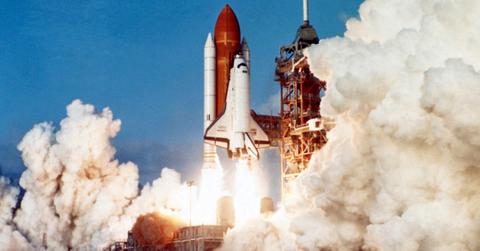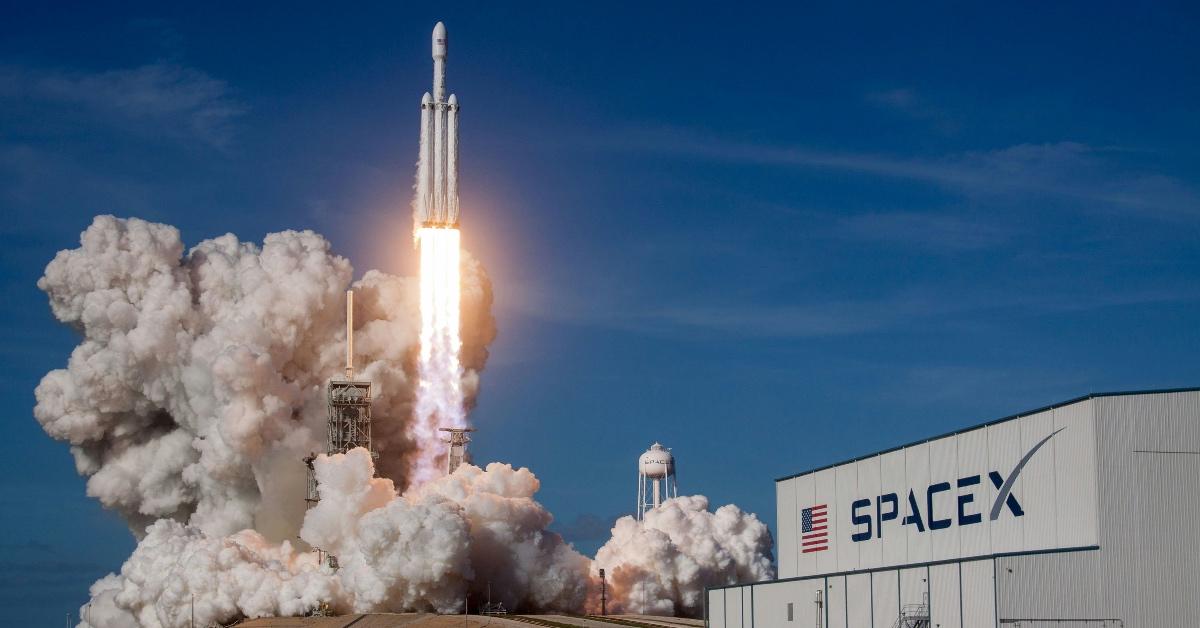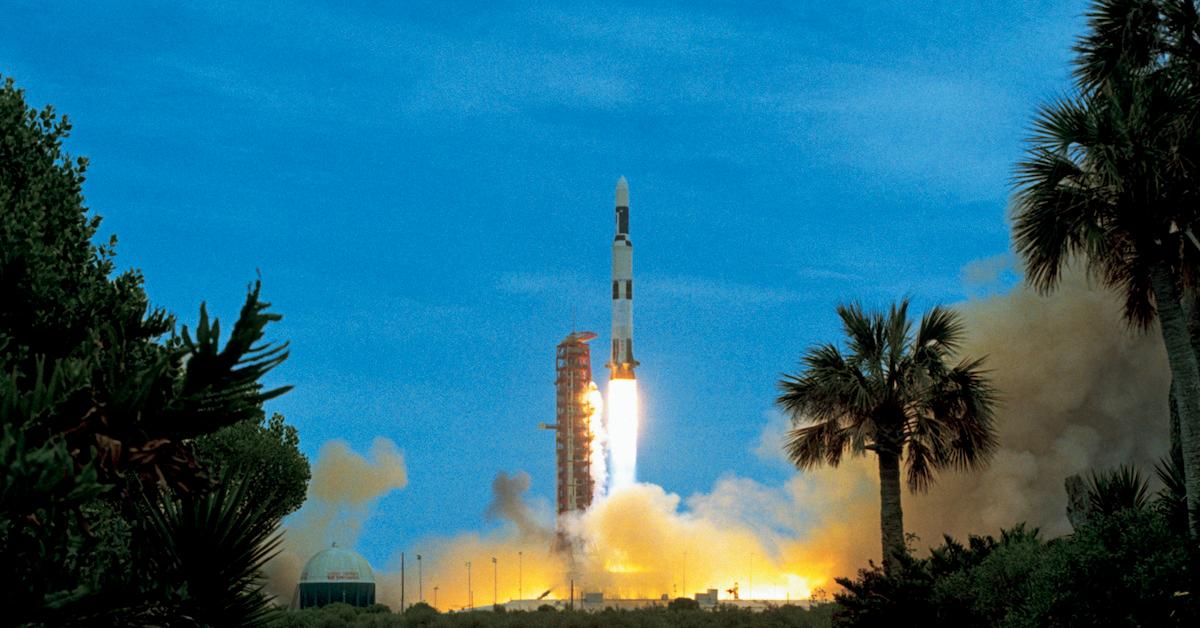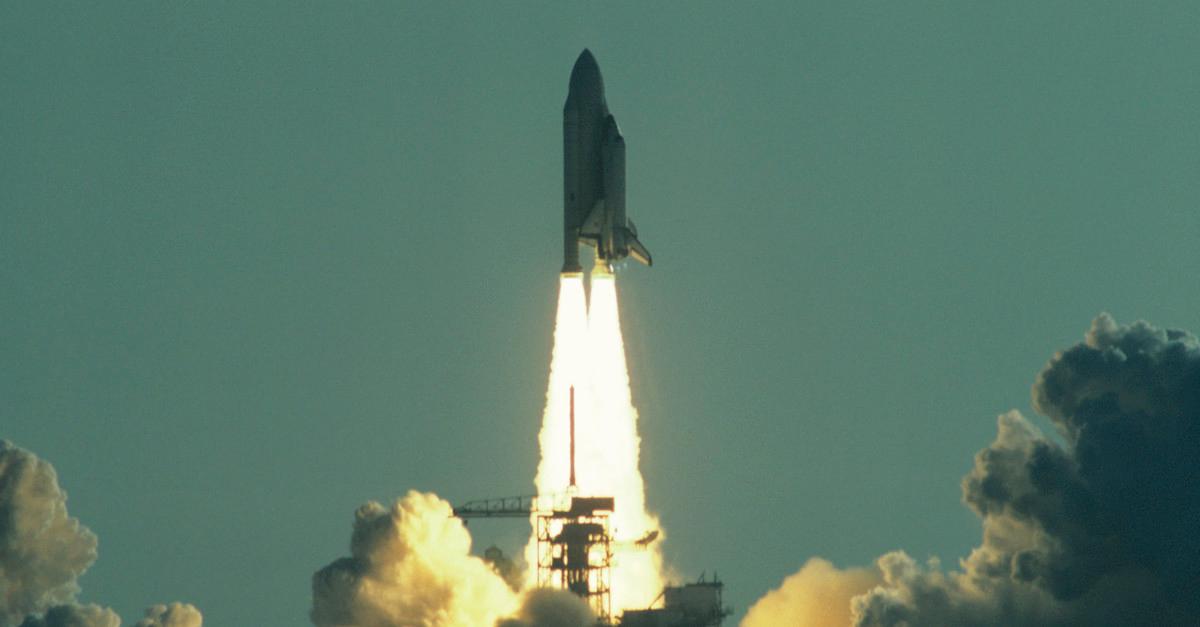How Do Space Launches Impact the Environment?
One Starship launch produces 76,000 metric tons of carbon dioxide equivalent.
Updated Jan. 17 2025, 2:01 p.m. ET

In an age of rapid technology innovation, unfortunately, not every new product or invention is eco-friendly. Artificial Intelligence (AI) was created in theory to make our lives easier, but instead it sucks up water and energy. Electric vehicles don't run on gasoline, but they can be expensive and also rust. Although man has been interested in space exploration since at least the 1950s, the environmental impact of such a feat hasn't been widely discussed — until now.
What is the environmental impact of space launches (or, for that matter, spaceship explosions)? Continue reading as we unpack the damage rockets present to the environment — and what some companies are already doing to remedy this issue.

Let's break down the impact of a rocket launch.
Rocket launches are inherently detrimental to the environment, but some are worse than others. The worst type runs on Unsymmetrical Dimethylhydrazine (UDMH), better known as Devil's Venom. According to Space, it's never made contact with planet Earth, but it still managed to create an environmental disaster in Russia's Kazakh steppe.
Solid rocket motors (SRMs) aid heavy rockets' liftoff, but they burn aluminum and ammonia. They also leave behind a toxic cloud of reactive chemicals that makes massive ozone holes.
Hybrid rocket engines, which generate short flights via Virgin Galactic, sound clean, but they're super pollutive.
"Hybrid engines can use different types of fuels, but they always generate a lot of soot," aerospace engineer Filippo Maggi told Space.com. "These engines work like a candle, and their burning process creates conditions that are favorable for soot generation."
Kerosene, or Rocket Propellent 1 (RP1) is a similarly reliable fuel, but it's also quite sooty, and pollutes the air.
Not to mention, when satellites or old rockets crash back to Earth, they burn up and leave behind metallic ash, per Space. Some researchers even believe that these remnants could affect the planet's magnetic field or damage the ozone layer.

There are, in fact, eco-friendlier rocket launch options.
Although methane is an obvious greenhouse gas that happens to be a large contributor to the agricultural industry's environmental impact, it's extremely powerful and not quite as pollutive as other propellents. Since it burns efficiently, it wastes less energy than other fuels.
According to The Los Angeles Times, SpaceX has been working on a rocket that runs on methane biomass, or methane that's been recycled. The engine, known as the Raptor, will refuel atop planet Mars.
In the realm of more eco-friendly options, there are both liquid oxygen and liquid hydrogen fuels. These liquid gases mostly leave behind water vapor instead of gross, pollutive exhaust, making for a naturally lower impact.
Companies such as Blue Origin will use liquid hydrogen to fuel its reusable rockets, which would ultimately make great strides in making the space race a little greener, even though it's notoriously less powerful than other types of fuels such as RP-1 or methane.

Finally, certain types of biofuel are in the works, but little research has been done about it. Startups like Orbex, however, are working to improve it and make it more widely available. Per Biofuel News, they could lower the impact of space travel by 95 percent.
Although it's far from perfect, using methane as rocket engine fuel is probably our best bet — it burns slowly and more powerfully that other green fuels. We hope to see more viable green options, however, in the foreseeable future.
This article, originally published on Oct. 29, 2021, has been updated.